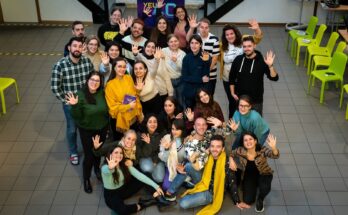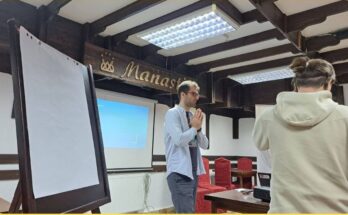Brussels, 14.09.2022
Key points:
- The State of the Union 2022 outlined several good initiatives, but the implementation of most of them is still up to the national governments. More than a political program, it risks being a list of requests to the Council.
- The Commission’s President failed to present any concrete follow-up on the Conference on the Future of Europe beyond one proposal.
- While Von der Leyen mentioned the need for treaty change, the Czech presidency declared the will to postpone any decision on a possible Convention. It is in these times of global challenges that an institutional change is more needed though.
In her State of the Union speech, President von der Leyen backed the need for an institutional reform of the EU, even if quite vaguely, as the recent Czech Presidency’ note dampened all hope already: the issue will have to be discussed, but no decision on a European convention will be taken during its own semester. Once again, the Commission outlines a program of action but its vision is held back by the Council. The State of the Union resulted to be more of a request to the member states, rather than the political plan of a should-be government.
Ursula Von der Leyen pledged to defend citizens by regulating the energy market, to protect democracy by fighting corruption and against external interference by other global empires, like China or Russia. Placing support to Ukraine at the heart of her speech, she also pledged to strengthen the single market, invest in the labour market and make the Union a leader in the supply of raw materials, essential to the digital transition. She announced her will to deepen international cooperation with Africa and Latin America and she reiterated support towards enlargement to Western Balkans and the Eastern Partnership, even if without committing better credibility and energy to the process.
The President presented a worthy plan, but we can no longer accept that the agenda of the EU basically depends on national governments instead of the European Commission. Its most important proposals to date, such as the own resources package, are blocked by individual vetoes or inaction in the EU Council.
Indeed, without clear resources the implementation of many of the programmes announced today is nothing more than hope while the political agenda presented will rely on her ability to convince European governments to find common solutions.
Based on the facts, intergovernmental decision-making is no longer credible, let alone accountable and democratic.
The President stressed the need for an intergenerational dialogue but failed to address the main requests of the Conference on the Future of Europe, contrary to her past promises. She mentioned it very briefly and failed to outline any concrete proposals except for an initiative to protect mental health. The EU’s executive must implement all the proposals within its area of competence, including ones going beyond its own priorities, and support the Treaty Change process initiated by the European Parliament.
“The President of the European Commission is right. We need to start a new treaty change process through a European Convention, or with other political initiatives if needed. It is the only feasible way to give to the Union the tools it so desperately needs to face today’s challenges. It is precisely in these difficult times that ambitious answers are needed. For a larger and more democratic Europe. For a federal Europe’, affirms Antonio Argenziano, President of JEF.
Will today’s message be delivered successfully and nourish new hope? Or will the good intentions be drowned out by so-called national interests once again, leaving other global players with the task to shape the world of the future?
European governments and the Council have the responsibility to answer.
About JEF Europe
The Young European Federalists (JEF Europe) is a political youth NGO advocating for the creation of a democratic European federation as a guarantee for peace, the rule of law and human rights. JEF Europe promotes true European citizenship, works for the widening and deepening of the European Union and strives for a more just and integrated society on the European continent. Established in 1972, the organisation has more than 10,000 activists organised in over 250 national, regional and local sections in 31 countries. The ideals and aims of JEF Europe are defined in the Manifesto of Ventotene, the Political Platform and resolutions adopted by its statutory bodies.
Previous positions on EU reform
- 2022.08.31 JEF Europe & JEF Germany joint press statement: Scholz’s Prague speech: too short a step for a federal Europe
- 2022.05.09 Press statement: From the Convention to the Political Union: time for a federal EU!
- 2022.04.30 JEF Europe press statement: Citizens want to change the European status quo
- 2022.04.19 JEF Europe & JEF France joint press release: It’s #TimeToChangeEurope: Join the Strasbourg Summit!
- 2021.11.30 JEF Europe & JEF Germany joint press statement: The new German government has a clear message: Time for a European Federation!
- 2021.09.15 JEF Europe press statement: Many steps but in what direction? Europe needs a fresh vision for an Ever Closer Union
- JEF Europe CoFoE proposals
Contact person:

Antonio Argenziano, President
Antonio Argenziano, President
Young European Federalists
Rue d’Arlon 53, 1040 Brussels





